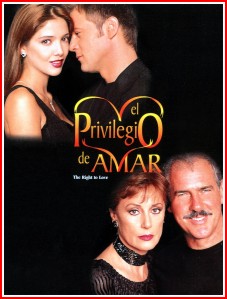
The Free Software Foundation Europe e.V. (FSFE) is an organization that supports free software and all aspects of the free software movement in Europe, with registered chapters in several European countries. It is a registered voluntary association incorporated under German law.

Mexican literature stands as one of the most prolific and influential within Spanish-language literary traditions, alongside those of Spain and Argentina. This rich and diverse tradition spans centuries, encompassing a wide array of genres, themes, and voices that reflect the complexities of Mexican society and culture. From ancient indigenous myths to contemporary urban narratives, Mexican literature serves as a poignant reflection of the nation's essence, inviting readers to explore its rich history, diverse culture, and collective aspirations.

The Free Software Foundation (FSF) grants two annual awards. Since 1998, FSF has granted the award for Advancement of Free Software and since 2005, also the Free Software Award for Projects of Social Benefit.
The Free Software Foundation of India (FSFI) is the Indian sister organisation to the US-based Free Software Foundation. It was founded in Thiruvananthapuram (Trivandrum) in 2001 as a non-profit Company. The FSFI advocates to promote the use and development of free software in India. This includes educating people about free software, including how it can help the economy of a developing country like India. FSF India regards non-free software as not a solution, but a problem to be solved. Free software is sometimes locally called swatantra software in India.

According to the Political Constitution of the Free and Sovereign State of Colima, the exercise of the Executive Power of this Mexican entity is placed in a single individual, called the Constitutional Governor of the Free and Sovereign State of Colima who is chosen for a period of 6 years and is not eligible for reelection. The term of governor begins November 1 of the year of the election and finishes October 31 after six years have elapsed.
The National Prize for Arts and Sciences is awarded annually by the Government of Mexico in six categories. It is part of the Mexican Honours System and was established in 1945. The prize is a gold medal and 520,000 pesos.

El privilegio de amar is a Mexican telenovela produced by Carla Estrada for Televisa. It aired on Canal de las Estrellas from July 27, 1998 to February 26, 1999. El privilegio de amar is a remake of the 1985 Venezuelan telenovela Cristal. El privilegio de amar is the highest-rated television program in Mexico to date; it registered an average of 34.8 percent of TV audience. The telenovela received the TVyNovelas Award for Best Telenovela in 1999.
Academia Nacional de Bellas Artes San Alejandro, is the oldest and most prestigious fine arts school in Cuba. It is also known as Escuela Nacional de Bellas Artes "San Alejandro", Academia San Alejandro, or San Alejandro Academy. The school is located in Marianao, a suburb of Havana, and was founded in 1818 at the Convent of San Alejandro.
The Free Software Foundation (FSF) is a 501(c)(3) non-profit organization founded by Richard Stallman on October 4, 1985. The organisation supports the free software movement, with the organization's preference for software being distributed under copyleft terms, such as with its own GNU General Public License. The FSF was incorporated in Boston, Massachusetts, United States, where it is also based.

According to the Free Software Foundation Latin America, Linux-libre is a modified version of the Linux kernel that contains no binary blobs, obfuscated code, or code released under proprietary licenses. In the Linux kernel, those types of code are mostly used for proprietary firmware images. While generally redistributable, they do not give the user the freedom to audit, modify, or, consequently, redistribute their modified versions. The GNU Project keeps Linux-libre in synchronization with the mainline Linux kernel.
The Free Knowledge Foundation is an organization aiming to promote Free Knowledge, including Free Software and Free Standards. It was founded in 2004 and is based in Madrid, Spain.
Events from the year 1940 in Argentina

Viviana is a Mexican telenovela produced by Valentín Pimstein for Canal de las Estrellas in 1978.
Cicatrices del alma is a Mexican telenovela produced by Eugenio Cobo for Televisa in 1986. It is an original story by Lindy Giacoman and adapted by Eric Vonn and Liliana Abud. It starred Norma Herrera, Germán Robles, Gregorio Casal, Rebeca Rambal and José Elías Moreno Jr.







